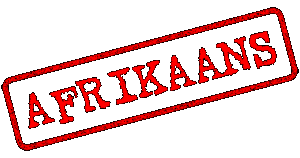Andrei.Hicks
Gold Member
     Offline
Offline

Australian Politics
Posts: 23818
Carlsbad, CA
Gender: 
|
Meanwhile.......
China Blocks More Airbus Jets
Move Escalates Trade Battle Over EU's New Levies on Greenhouse Emissions
PARISóChina is holding back the approvals Chinese airlines need to buy 10 more Airbus A330 jetliners, a person close to the situation said Thursday.
The move is part of an escalating trade row over the European Union's new levies on aviation greenhouse emissions. The Chinese authorities have already held back approvals for the purchase of 45 Airbus passenger aircraft by airlines based in China and Hong Kong.
Orders worth more than $14 billion are now at risk for the aircraft-making unit of European Aeronautic Defence & Space Co. EAD.FR +0.92%NV. Airbus is a major contributor to French exports.
"There is a hellish battle going on behind the scenes," a senior French government official said Thursday. "We knew [the emissions levies] would provoke strident protests," the official said. "Now we're facing a real threat."
Chinese officials have denied moving to block new Airbus orders. A spokeswoman for the Civil Aviation Administration of China said on Monday that the government "will respect the views of the airlines" in ordering planes. She added that the Chinese government hopes to reach a resolution through negotiation.
Under the EU program, any airline operating at an EU airport must hold special credits to offset its carbon-dioxide emissions since the start of this year. Airlines have said their inclusion in what is known as the Emissions Trading Scheme (ETS), which already covered many EU industries, will cost them billions of dollars annually.
European airlines as well as Airbus may soon bear the brunt of a trade war, particularly if Russia retaliates, the person close to the situation said. "If Russia imposes [additional] overflight charges, that could turn out to be very expensive for European airlines, [considering] Russia's airspace is huge," the person said. Overflight charges are fees imposed by some countries for flying through their airspace.
Last week, Airbus and European aviation-related companies sent letters to the leaders of France, Germany, Spain and the U.K., warning of consequences of retaliatory action by foreign governments. India had warned that European airlines face the suspension or nonextension of traffic rights or overflights, and Russia has threatened additional overflight charges, they said.
European law makers Thursday backed the inclusion of all airlines in the ETS in a vote in the European Parliament in the French city of Strasbourg.
"If Europe would decide not to implement the legislation just because of the pressure from third countries, that would set a very negative precedent also for other fields of politics such as regulation of the financial market or trade policy," said Matthias Groote and Peter Liese, two members of the assembly who have followed the ETS closely.
Even though the vote is only a political indication with no legal implications, it is significant because the Parliament is throwing its weight behind legislation that has pitted the EU against 23 other countries angry about the carbon-dioxide trading plan. In a joint declaration statement last month after a meeting in Moscow, the countries argued that the EU's unilateral imposition of the ETS program will lead to market distortions and unfair competition.
"The threat of retaliation creates uncertainty in the business environment," said Victoria Moores, spokeswoman for the Association of European Airlines in Brussels. "We want to see concrete steps toward de-escalating this" through the International Civil Aviation Organization, Ms. Moores said. The ICAO is the specialized aviation agency of the United Nations.
The EU is "fighting hard" to get results at ICAO, said a spokesman for EU climate commissioner Connie Hedegaard. "If countries criticizing our system have the necessary political will to make it happen, then let's get it done. In the light of an ambitious global agreement in force, we will review our legislation."
Bertrand Lebel, Executive Vice President of Air France-KLM, said in an interview: "We're caught in the middle. We don't dispute that airlines should contribute to offsetting their emissions, but it has to be done through international negotiation, preferably through the ICAO." He observed that Gulf carriers will benefit most from the ETS, as they will be able to bypass Europe and build up traffic between east and west through their hubs in the Gulf.
EADS said last week the Chinese authorities were holding back approvals for 35 A330s ordered by Chinese airlines as well as 10 A380 super jumbos that are destined for Hong Kong-based airlines. Last month, China banned its airlines from taking part in the ETS plan.
Airbus has already started cutting metal for some of the A330s that are scheduled for delivery to Chinese airlines starting in 2013.
The Chinese customers have made down payments on the aircraft and stand to forfeit these sums if they cancel the orders. Airbus has warned that the loss of the Chinese orders puts 1,000 jobs at risk as well as a similar number at its suppliers.
Industry analysts say Airbus would be able to find airlines willing to take the Chinese delivery slots without any difficulty, provided the manufacturing process isn't too far advanced as airlines require a certain degree of customization of the planes they need.
Retaliatory action against the EU would intensify the pressure on European airlines with long-haul operations, as they struggle to cope with high fuel costs and growing competition.
|

 Forum
Forum

 Home
Home 

 Album
Album 

 Help
Help

 Search
Search

 Recent
Recent 

 Rules
Rules 

 Login
Login

 Register
Register





 Pages:
Pages: 

